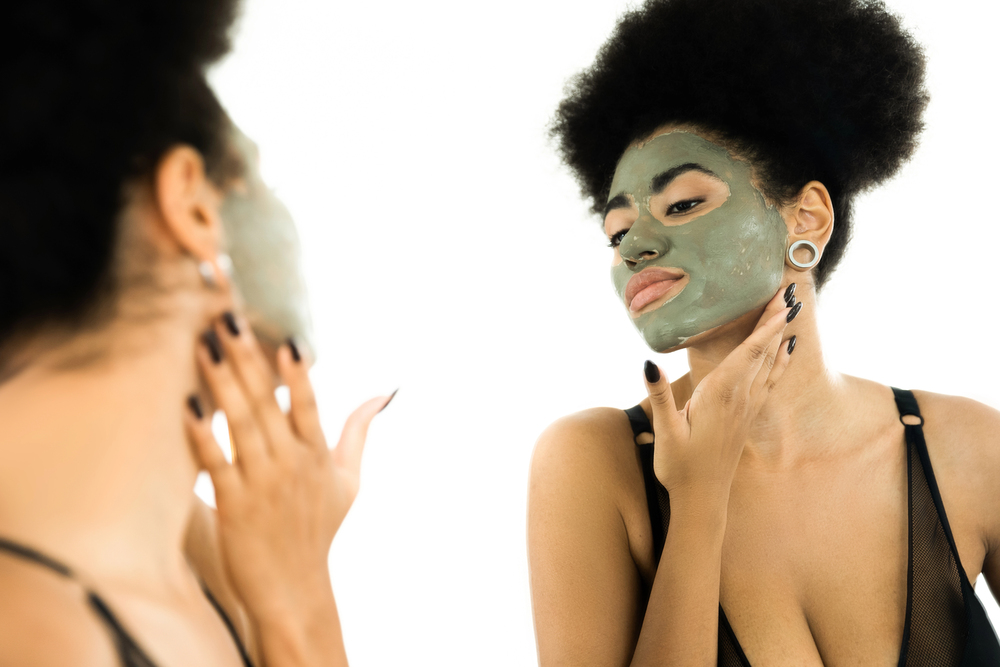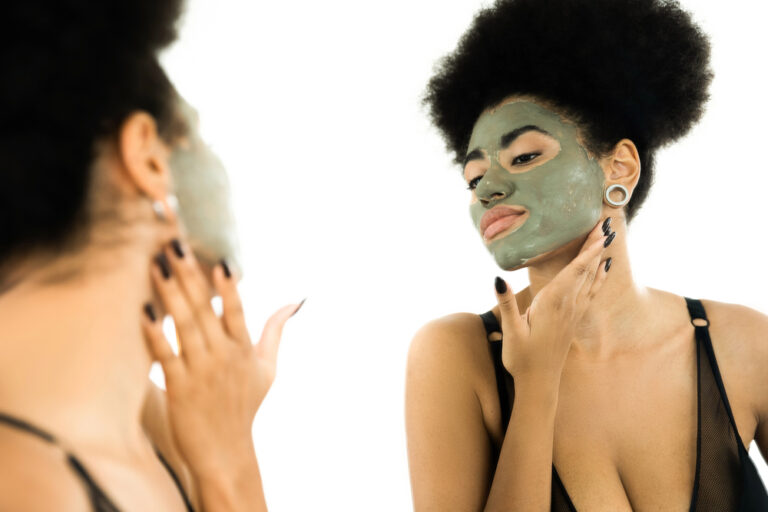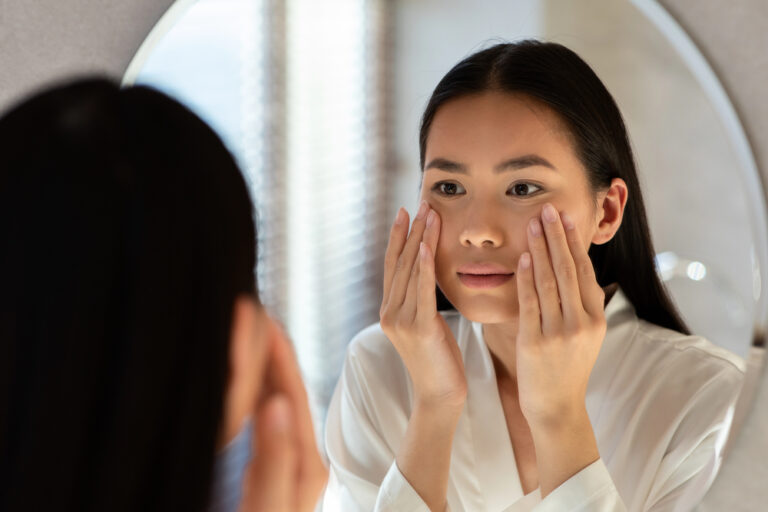

Introduction: Beginner Skin Care Routine Basics
A beginner skin care routine is more than applying random products—it’s about understanding your skin’s needs and creating habits that nourish it daily. Whether you’re dealing with dryness, acne, or dullness, a consistent routine can help you achieve clear, glowing skin. By focusing on gentle cleansing, hydration, and protection, you’ll build a foundation for lifelong skin health.
Establishing a beginner skin care routine might seem intimidating with so many products on the market. However, by starting with the essentials and using products suited to your skin type, you can see noticeable improvements within weeks. Let’s explore seven essential steps that transform your daily regimen into a mindful ritual of self-care and skin renewal.
1. Gentle Cleansing: The Foundation of Every Routine
Every beginner skin care routine starts with cleansing. This crucial step removes dirt, excess oil, and impurities accumulated during the day or night. Use a gentle cleanser that suits your skin type—gel cleansers for oily skin, cream cleansers for dry skin, and micellar water for sensitive skin.
Pro Tip: Avoid harsh soaps or foaming cleansers with sulfates. Over-cleansing strips the skin’s natural oils and disrupts its barrier. Cleansing twice daily—morning and evening—prepares your skin to absorb other products effectively.
Recommended Product:
-
CeraVe Hydrating Facial Cleanser – ideal for dry to normal skin, enriched with ceramides and hyaluronic acid.
2. Exfoliation: Reveal Fresh, Smooth Skin
In any beginner skin care routine, exfoliation helps remove dead skin cells that cause dullness and clogged pores. There are two main types—physical exfoliants (scrubs) and chemical exfoliants (AHAs and BHAs). Beginners should start with mild exfoliation 1–2 times per week to avoid irritation.
Benefits:
-
Promotes cell turnover
-
Enhances absorption of serums and moisturizers
-
Smooths skin texture
Recommended Product:
-
The Ordinary Glycolic Acid 7% Toning Solution – a gentle chemical exfoliant that brightens and refines skin texture.
3. Toner: Restore Balance and Hydration
A toner in your beginner skin care routine helps rebalance the skin’s pH after cleansing and exfoliation. Modern toners are formulated with hydrating and soothing ingredients, unlike the alcohol-based versions of the past.
Look for toners with rose water, witch hazel, or hyaluronic acid to refresh your skin and tighten pores. Apply with a cotton pad or your hands by gently patting it into your skin.
Recommended Product:
-
Thayers Witch Hazel Toner with Aloe Vera – alcohol-free and great for calming redness and irritation.
4. Serum: Targeted Skin Solutions
A serum is the powerhouse step in any beginner skin care routine. Serums deliver concentrated active ingredients that address specific concerns like fine lines, dark spots, or dehydration. For beginners, start with hydrating serums containing hyaluronic acid or vitamin C for brightness and antioxidant protection.
Benefits:
-
Brightens skin tone
-
Fights free radicals
-
Improves elasticity and hydration
Recommended Product:
-
La Roche-Posay Hyalu B5 Serum – a hydrating formula that plumps and smooths skin, suitable for all skin types.
5. Moisturizer: Lock in Hydration
No beginner skin care routine is complete without moisturizer. It seals in hydration, strengthens the skin barrier, and prevents water loss. Even oily skin needs moisture—opt for lightweight, non-comedogenic options to avoid clogging pores.
Types of Moisturizers:
-
Cream-based: For dry or mature skin
-
Gel-based: For oily or combination skin
-
Lotion-based: For normal or balanced skin
Recommended Product:
-
Neutrogena Hydro Boost Water Gel – formulated with hyaluronic acid, perfect for maintaining plump, dewy skin.
6. Sunscreen: The Ultimate Skin Protector
Perhaps the most vital step in your beginner skin care routine, sunscreen shields your skin from harmful UV rays, preventing premature aging, sunspots, and skin cancer. Apply a broad-spectrum SPF 30 or higher every morning, even on cloudy days.
Pro Tip:
Use two fingers’ worth of sunscreen for your face and neck. Reapply every two hours if you’re outdoors.
Recommended Product:
-
EltaMD UV Clear Broad-Spectrum SPF 46 – dermatologist-recommended, lightweight, and suitable for sensitive or acne-prone skin.
7. Night Care: Repair While You Sleep
Your beginner skin care routine should include a simplified night routine focused on repair and recovery. At night, your skin naturally regenerates, so use nourishing products like retinol, peptides, or night creams that support cell turnover and hydration.
Night Routine Example:
-
Gentle cleanser
-
Hydrating toner
-
Serum (with hyaluronic acid or niacinamide)
-
Moisturizer or overnight mask
Recommended Product:
-
Olay Regenerist Retinol 24 Night Moisturizer – helps renew skin overnight, reducing fine lines and uneven tone.
Choosing the Right Products for Your Skin Type
Understanding your skin type is key to building an effective beginner skin care routine:
-
Oily skin: Look for oil-free, mattifying products.
-
Dry skin: Focus on creamy cleansers and emollient moisturizers.
-
Combination skin: Balance hydration and oil control.
-
Sensitive skin: Choose fragrance-free and hypoallergenic formulas.
When introducing new products, patch test first to avoid allergic reactions or irritation. Start slowly and observe how your skin responds before layering multiple active ingredients.
Common Mistakes Beginners Should Avoid
Even a perfect beginner skin care routine can fail with a few missteps:
-
Over-exfoliating: Leads to redness and micro-tears.
-
Skipping sunscreen: Causes long-term skin damage.
-
Using too many actives: Can irritate and overwhelm skin.
-
Not being consistent: Results take time; stick with your routine for 4–6 weeks before judging effectiveness.
Patience and simplicity are your best allies in skincare.
When to See a Dermatologist
If your beginner skin care routine isn’t improving conditions like acne, rosacea, or hyperpigmentation, a dermatologist can help. They may recommend prescription-strength treatments or in-office procedures such as chemical peels and laser therapy tailored to your skin’s needs.
Professional advice ensures your skincare journey is guided by science and safety.
Reference
American Academy of Dermatology Association (AAD). “Skin Care Basics for Healthy Skin.”



